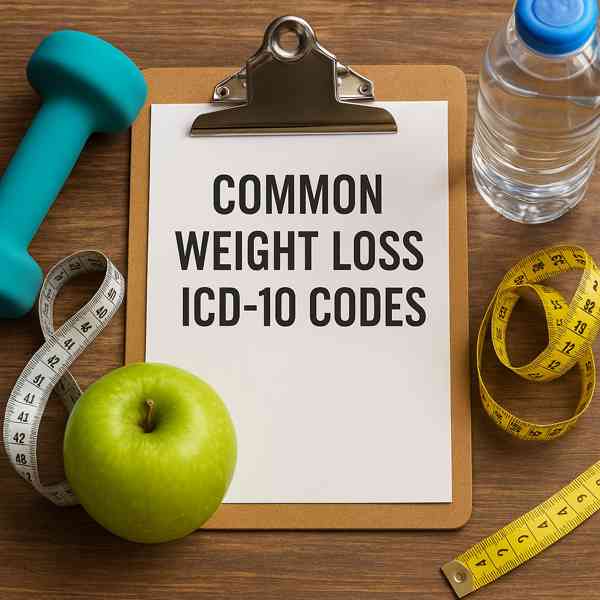
ICD-10 codes help communicate diagnoses effectively, ensuring insurance coverage and proper documentation.
In this article, we’ll break down what ICD-10 codes are used for weight loss, how to apply them, and what you should know for accurate recordkeeping.
ICD-10 Basics Explained
It’s a standardized system used worldwide for classifying medical conditions and diseases.
Each diagnosis is assigned a unique code, which is used for:
- Submitting claims to health providers
- Organizing medical statistics
- Clinical documentation
ICD-10 Codes for Weight Loss
Choosing the correct code depends on the cause, severity, and context of the weight loss.
Key codes include:
- R63.4 – Abnormal Weight Loss
This code applies when a patient loses a significant amount of weight without trying, often due to illness.
- Used when weight loss is guided by professional support
Often applied in cases involving nutritional intervention or guidance.
- Indicates poor nutrition or unhealthy patterns impacting weight
- E66.9 – Obesity, Unspecified
- E43 – Unspecified Severe Protein-Calorie Malnutrition
Documenting Unexplained Weight Loss Properly
R63.4 is the most commonly used ICD-10 code for weight loss, but it must be applied correctly.
- There is no intentional diet or fitness program involved
- A known condition doesn’t fully explain the weight change
- Used as part of diagnostic workup
Avoiding Mistakes in Documentation
To avoid claim denials or coding errors:
- This determines whether R63.4 is appropriate
- Document related symptoms or conditions
- Support your claim with a full picture
- Be sure they make sense in context
Coding for Counseling and Support Services
If you’re coding for a structured weight loss program or health coaching, consider using these Z-codes:
- Z71.3 – Dietary Counseling
- Z76.89 – Person Encountering Health Services for Other Reasons
- Used in early evaluation settings
These codes can support insurance claims for wellness, prevention, and obesity treatment plans.
Use ICD-10 Effectively in Clinical Settings
Whether you’re coding for unintentional weight loss or part of a managed care gradual weight loss without trying plan, accuracy matters.
To summarize:
- R63.4 = Unintentional weight loss
- Great for structured programs
- Use when weight loss is tied to illness
Always consult coding guidelines and payer policies when applying ICD-10 codes.
Comments on “ICD-10 Medical Codes for Weight Loss”